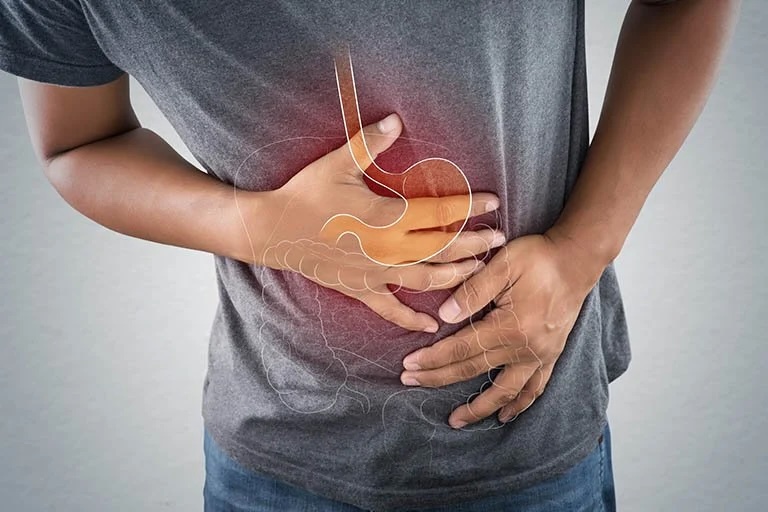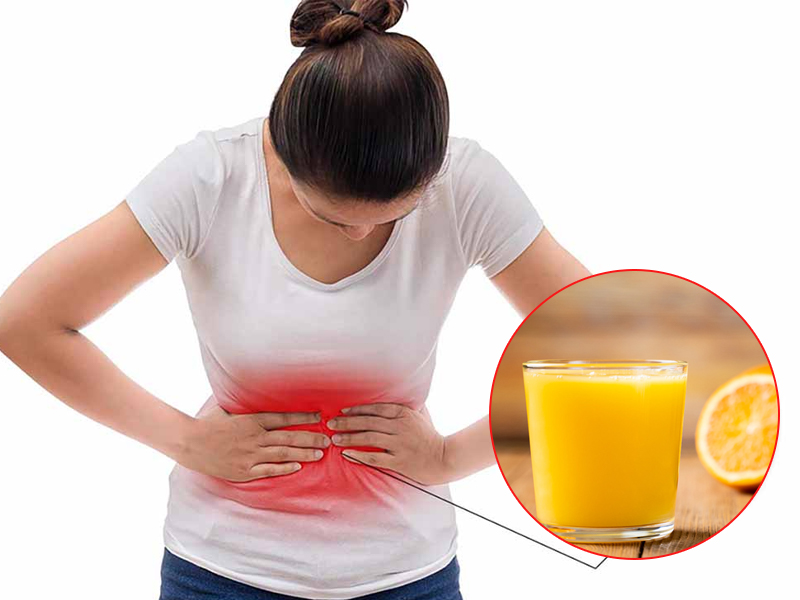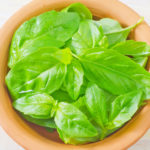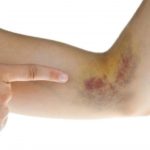Should you drink orange juice if you have gastric ulcers?
Orange juice is known to be a nutritious beverage, rich in natural acids such as ascorbic acid and citric acid, along with other components including Vitamin C, flavonoids, carotene, vitamin B1, B9, and minerals like potassium, phosphorus, iron, calcium, and magnesium. These nutrients bring many health benefits to humans.
However, for those experiencing issues with gastric ulcers and colitis, consuming orange juice is not recommended. Orange juice contains high levels of acid and organic substances that can increase the amount of acid in the stomach, causing a condition of heartburn and exacerbating the ulcer condition.
Similar to orange juice, other foods that can increase stomach acidity such as lemons, limes… should also be consumed in moderation by individuals with gastric ulcers and colitis.

Patients with gastric ulcers should limit drinking orange juice
Gastric ulcers and colitis cause inflammation and ulceration on the gastric or colonic mucosa, leading to prolonged abdominal pain and discomfort. This affects the patient’s fatigue, sleep difficulty, and insomnia, and reducing these symptoms can significantly improve their quality of life.
In cases where gastric ulcers become severe, with intense pain and other digestive issues, close monitoring and timely treatment are crucial. Based on the doctor’s examination results and diagnosis, an appropriate treatment protocol will be proposed, along with the most effective treatments for gastric ulcers.
In addition to adhering to medical treatment protocols, patients can also apply the following natural remedies to effectively alleviate symptoms of gastric ulcers.
Adopt a scientific diet
A balanced diet rich in fiber is the top natural method to reduce stomach pain at home. Increasing fiber supports the growth of beneficial bacteria, enhances the efficiency of digestion and food absorption.
At the same time, to reduce pressure on the stomach, patients should avoid foods that are deep-fried in oil, processed foods containing preservatives, fermented foods, and eliminate stimulating drinks from their daily diet. These foods can increase stomach acid secretion and worsen the gastric ulcer condition.
Choosing appropriate foods is crucial for those suffering from gastric ulcers. This helps control the excess acid production, minimize pain, and prevent further ulcer development.
To protect the gastric mucosa, priority should be given to foods that help reduce gastric acid secretion and have mucosal protective properties, helping to neutralize stomach acid, such as glutinous rice, arrowroot powder, bread without yeast, biscuits, tubers like sweet potatoes, and honey.
In addition, fiber-rich foods such as carrots, potatoes, pumpkins, oats, whole wheat bread… are also beneficial in reducing gastric acid and enhancing absorption, thereby soothing the gastric mucosa.

Consult a doctor before making a decision to drink orange juice if you have gastric ulcers.
Eat on time, don’t skip meals
An unstable eating schedule, not following a specific mealtime, can disrupt the body’s natural biological clock, slowing down metabolism and leading to gastrointestinal issues such as indigestion, gastric pain, and other symptoms. Eating at irregular hours or skipping meals causes the stomach to produce more gastric acid, which can damage the gastric ulcer and worsen the condition. Therefore, eating meals on time and maintaining regular eating habits are essential for maintaining gastric health.
Eat soft and small-sized food
Those with gastric pain should choose foods with a smooth, gentle texture that are easily digested and quickly absorbed. This helps minimize stomach acid secretion, reduce the feeling of pain, and protect the ulcers from further damage. Additionally, food should be prepared by cutting or grinding, reducing the burden on the stomach during the digestion process, especially when the stomach is inflamed and weakened.

Avoid drinking orange juice on an empty stomach or when experiencing acid reflux symptoms.
Apply warm compress on the abdomen
Applying a hot compress to the abdominal area can be a useful method to relieve pain and improve symptoms for people with gastric ulcers. Applying a heated bag with a temperature of about 50 to 65 degrees Celsius to the painful abdominal area for a period of 10 to 20 minutes can help dilate the blood vessels in the upper abdomen, reduce the contraction of the stomach, thereby reducing the sensation of pain and improving blood circulation to the digestive system. To enhance the effectiveness of the warm compress, performing deep breathing exercises is also encouraged.
Drink a glass of warm water to relieve stomach pain
When feeling the onset of stomach pain, prepare a glass of warm water to drink immediately. To enhance the effect, a small amount of salt or a few drops of honey can be added to the water. This simple method can provide significant relief during troublesome stomach pain.
These measures are very basic but can help quickly improve symptoms of gastric ulcers. If the pain does not decrease and returns regularly, patients should seek professional medical care for examination and the appropriate treatment protocol.
Orange juice contains high levels of natural acids, including ascorbic and citric acid. These acids can increase the acidity in the stomach, leading to heartburn and aggravating existing ulcers.
Yes, other acidic foods such as lemons and limes should also be consumed in moderation by individuals with gastric ulcers and colitis. These foods can increase stomach acidity and worsen symptoms.
Adopting a scientific diet is crucial. This includes consuming a balanced diet rich in fiber, which helps reduce stomach pain. Prioritize foods that reduce gastric acid secretion and protect the mucosal lining, such as glutinous rice, arrowroot powder, yeast-free bread, biscuits, sweet potatoes, and honey. Also, ensure you eat on time and don’t skip meals to maintain a healthy digestive schedule.
Yes, choose soft and smoothly textured foods that are easy to digest and absorb. Cut or grind food to reduce the burden on the stomach during digestion, especially when inflammation is present. Avoid deep-fried, processed, and fermented foods, as well as stimulating drinks, as these can increase stomach acid secretion.
Applying a warm compress to the abdomen can provide relief. Use a heated bag at a temperature of 50-65 degrees Celsius for 10-20 minutes to dilate blood vessels and reduce stomach contractions. Drinking a glass of warm water, optionally with a small amount of salt or honey, can also soothe stomach pain.
If pain does not decrease and returns regularly, it is important to consult a doctor for examination and appropriate treatment. Severe gastric ulcers can cause intense pain and digestive issues, requiring close monitoring and timely medical intervention.





































